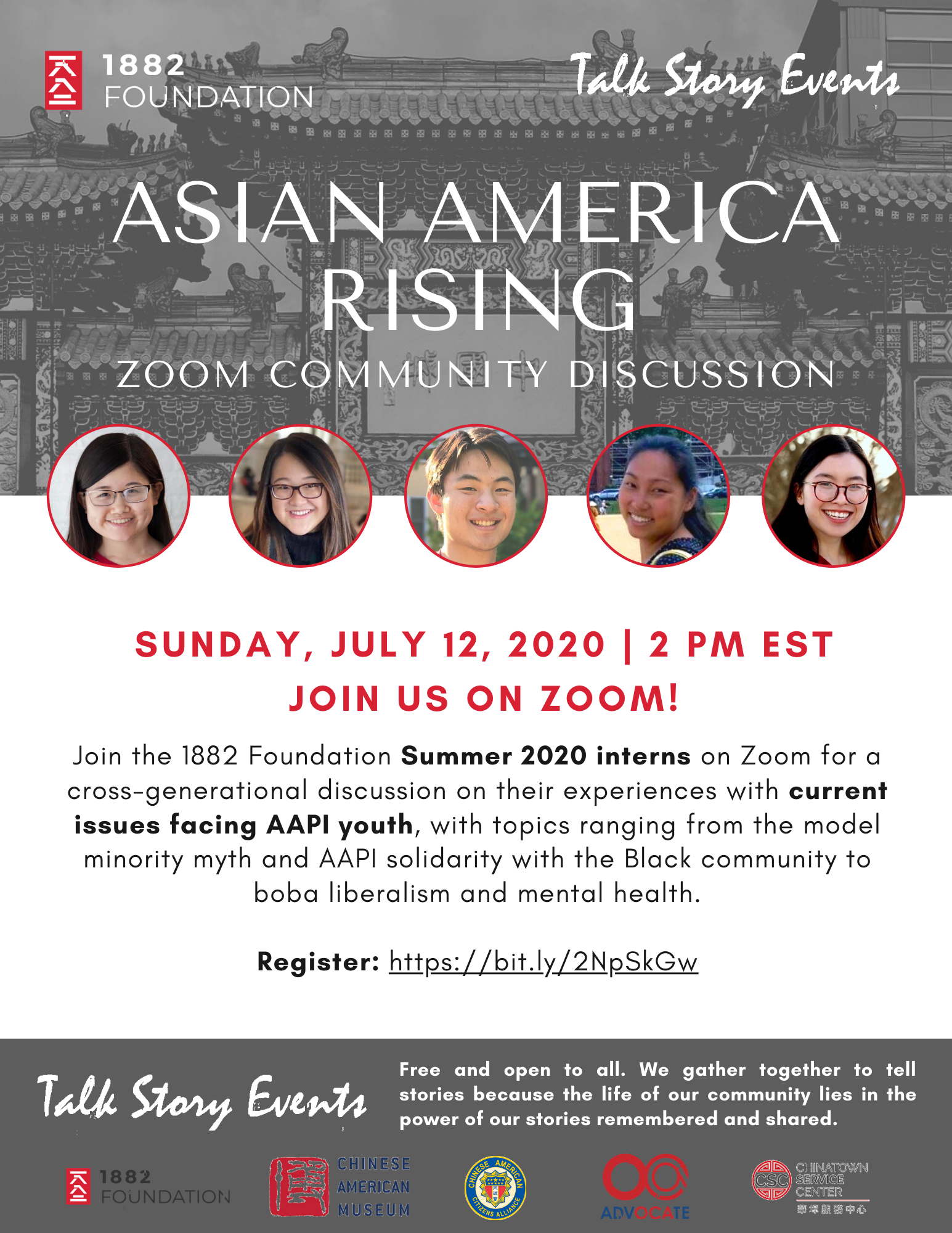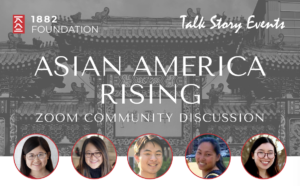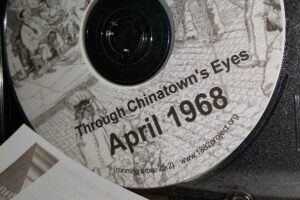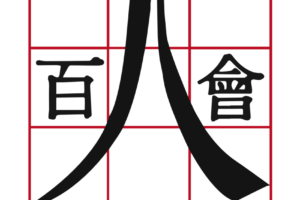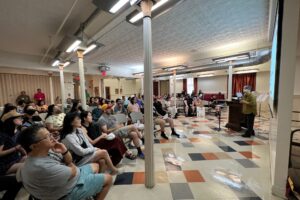On Sunday, July 12th, a group of 1882 Summer Interns led a discussion on current issues within the Asian and Pacific Islander American community. The speakers gave a general overview of various political, cultural, and social challenges that Asian Americans currently face — with the caveat that they are first, not representative of Asian America and second, not experts on any given issue. Interns Lauren Eng, Saniya Han, Susan Li, Hayle Wesolowski, and Kyle Wang (read more about them at Our Team) discussed five main topics: identity and intersectionality, solidarity with the Black community, affirmative action in higher education, diversity and discrimination in the workplace, and boba liberalism and commodity culture. Their aim was to provide some background on these topics as well as share their own opinions and experiences.
As a companion to their presentation and discussion, the interns compiled a list of resources and readings separated by topic, listed here:
Start of each topic in the video:
- Identity & Intersectionality: 7:47
- Solidarity with the Black Community: 24:33
- Affirmative Action in Higher Education: 50:55
- Asian American Representation in the Workplace: 1:05:00
- Boba Liberalism & Commodity Culture: 1:15:47
Additionally, many great comments were made in the chat box throughout the discussion. To learn more about the audience’s insights, refer to the anonymous quotes below:
Intersectionality & Solidarity:
- “Before, as an African-American I understood that we as a people generally have the same struggle overall, but in recent years I have come to know my privilege as a straight black man, and that I may never understand all the problems black women face, and solidarity remains a constant issue.”
- “This is a great discussion. I think it is important to talk about these things particularly because there is so much normalized discourse that tries to fragment POC solidarity and erase historical solidarity, like that great visual of Jesse Jackson embracing Vincent Chin’s mother. So many parallels with the model minority myth, erasure of Filipinos in the farmworkers movement, etc.”
- From the presenters: “I think it’s also good to note that we’re using the “BLM” movement as shorthand for the fight for racial justice in general. In reality, the movement is organic, diffuse, and community-based and it’s not just rooted in one organization or leadership structure. Lots of different perspectives exist within the struggle.”
- “Very significant discussion here. How much of our experience as Asian Americans is shared by others, esp. African Americans? In terms of BLM, I believe that this is their moment, that the focus needs to be on their experience over the long course of American history. The role of others, including Asian American is that of support, being an ally, or a term I’ve just recently come to prefer called “accompaniment.” It means being there, being present. It means not taking a leadership role in the action or trying to dictate strategies or but asking “What can I do to support you? What help can I offer?”
- Shared link: “How to Talk to Our Asian Parents about Anti-Blackness”
- “When Asian people go to BLM protests, what do you guys think are appropriate ways to show our Asianness/our ethnicity with signs such as ‘Asians support Black power’ or just to show ‘BLM’ by centering black community?” (This question is further addressed during the presentation: skip to 55:30 minutes)
- “I think there is room for both messages. I have not brought an “Asians support” sign to the protests but my partner, who is Latino, notices signs that express Latino support and I think that visibility can help draw in people like older relatives. Another factor though is that I am visibly racial so there’s no way not to notice I’m an Asian person supporting this issue.”
- Shared links: Black Lives Matters Demands & Goals, & https://www.8toabolition.com/
Boba Liberalism & Commodity Culture:
- “Not only do [Boba Guys] contribute to gentrification, but also they recently went cashless and installed surveillance cameras at their stores. Cashless systems are classist, and surveillance is inherently racist & punitive, and contributes to the carceral system (& doesn’t solve the issue at hand)! When they were criticized for it, the founders cited their degree and fraternity membership (?) as legitimacy to their decision.”
In response to how the presentation addresses the “rising” of Asian Americans:
- “The issues [presented] are a PART of our rising. If we continue to only praise Asian American successes and achievements, we contribute to continued inequality and injustice. We cannot rise without addressing them, or we become the oppressors we seek to dismantle.”
- “Grace Lee Boggs: “Being a victim of oppression in the United States is not enough to make you revolutionary, just as dropping out of your mother’s womb is not enough to make you human. People who are full of hate and anger against their oppressors or who only see Us versus Them can make a rebellion but not a revolution. The oppressed internalize the values of the oppressor. Therefore, any group that achieves power, no matter how oppressed, is not going to act differently from their oppressors as long as they have not confronted the values that they have internalized and consciously adopted different values.”
- “When we come together like this and have intergenerational conversations about topics that are pertinent to us as AAPIs, I feel like that is when we are truly “rising” in such uncertain times like right now.”

